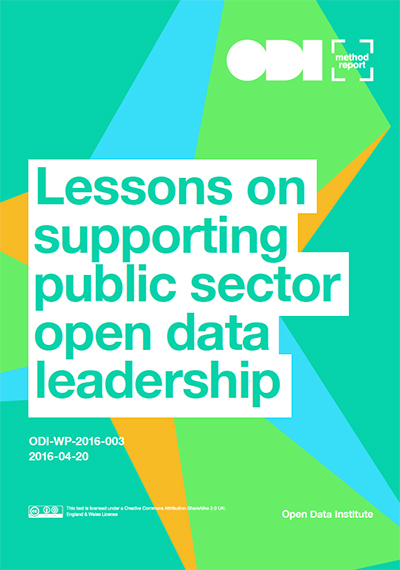Open Data Institute recently released a method report highlighting lessons on supporting public sector open data leaderships.
As our open data movement continues to grow and shift, practitioners are emphasizing the importance of sharing; be it data, lessons, or best practices. By creating a collaborative environment for sharing and learning, we can collectively advance our efforts to use data for social good.
The Open Data Institute (ODI) continues to enhance their mission to “connect, equip and inspire people around the world to innovate with data,” through their most recent method report, Lessons on supporting public sector open data leadership.
This comprehensive report presents a summary of first-hand lessons based on ODI’s experience working with and supporting open data leaders globally. In the true spirit of sharing, with this report, ODI, aims “to help practitioners and researchers working in good governance and open data to understand effective techniques for building leadership capacity, particularly for implementing transformational reforms within government.”
As highlighted in the report, the ODI research team made five key findings:
- Peer networks help boost personal and professional development, but more research is required to understand how to scale their impact.
- Training programs for civil servants are one component of a broader process of capacity building.
- Strategic assessments should be reframed in participatory terms to promote ownership of results and follow-up actions.
- Leadership programs should incorporate a degree of flexibility, and plans should be adapted as external circumstances change.
- Teams providing leadership support or training activities should conduct ongoing reviews of their own effectiveness
We encourage any individual or organization working with data to use this method report as a resource and tool. As expressed by Peter Manzo in his contribution to Markets For Good (No numbers without stories, no stories without numbers), “In complex challenges, often no one party has all the relevant and necessary data, meaning that in many cases, collaboration and the sharing of data is imperative to success. Private nonprofits, government agencies (such as school districts or health departments), and researchers from academia or evaluation firms must work together to bring their contribution to the soup.”

